
Web Developers
The Coresight Research team attended XRC Labs Cohort 6 Launch Day event in New York City on July 17 at the Parsons School of Design.
Engaging discovery often involves scarcity and entertainment. Anthos referenced American Girl, a store that sells dolls to children. The store provides shoppers with a passport-like document. When shoppers pay for their product, the passport is stamped and then the shoppers must go to another section of the store to show their passport to receive their purchased item.
Loyalty has evolved, said Anthos, and it is not about points, but brand loyalty, “what tribe of lifestyle are you a part of?” He referenced lifestyle-driven brands and retailers such as Glossier and TOMS.
Retail innovation is slow compared with technological innovation, he said, but the industry is indeed changing. Anthos noted that stores are evolving in five key ways: they are mobilizing to serve consumers through flexible formats, offering unique experiences, operating as platforms, operating as services for consumers and serving as factories where consumers can purchase items on demand.
XRC Labs Is Also Evolving, and 54 Out of 55 from Cohorts Are Still Active
Anthos spoke about the evolution of the XRC Labs program. More than 400 companies applied to the program in 2018 and 54 companies (out of 55) from the six cohorts are still in business. For Cohort 6, top countries represented were: the US, from which 60% of applications hailed, 6% from India and 5% from the UK. The top focus areas included retail (59%), fashion (40%), consumer (30%), mobile (22%) and e-commerce (20%). Overall, 44% of Cohort 6 companies have female CEOs, said Anthos.
Anthos concluded by announcing that XRC is growing its strategic innovation partner with University of Pennsylvania business school Wharton to host an invite-only event taking place on November 7–8th.
Below, we provide a brief summary of each of the eight companies in XRC Labs’ Cohort 6:
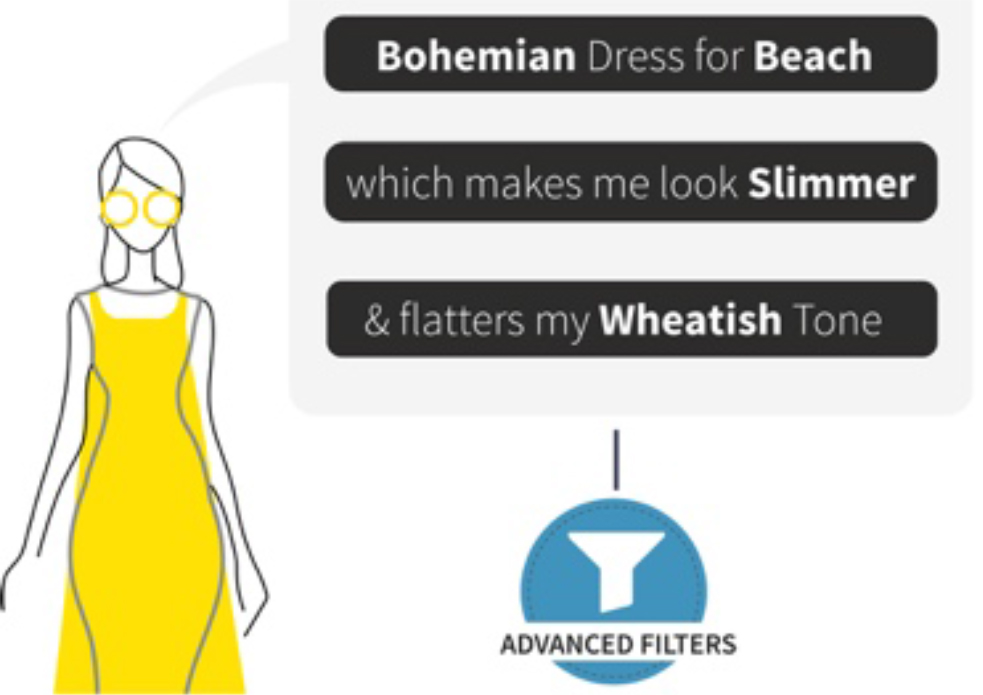
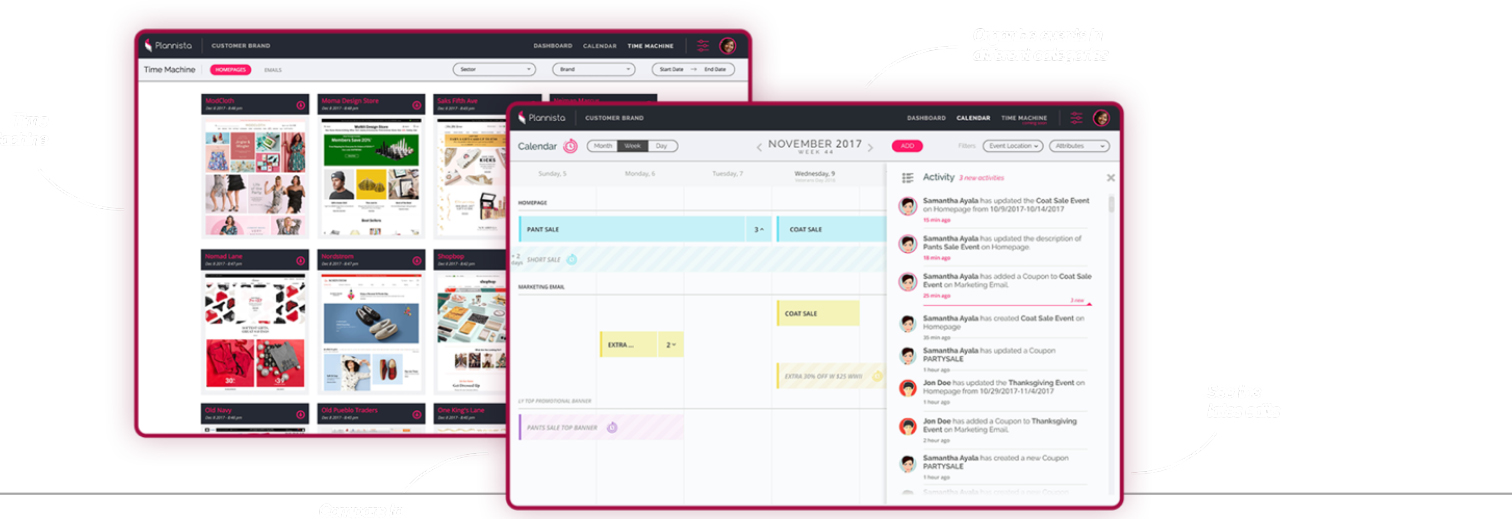
RetailDeep is a facial-integration platform that uses sensors to identify shoppers as they walk into the store and then delivers personalized insights, with the goal of saving retailers the cost and time to integrate facial-recognition data with client relationship management (CRM)/Point of Sale (POS) data. Founded by two AI Ph.Ds in 2014, the company is building sensors to help brick-and-mortar retailers detect individual customer visits. The sensors are powered by AI technology, which can then draw from all available data sources such as POS data, CRM or ERP system to help retailers map the customer journey through online, in-store and even social media.
RetailDeep worked with a cosmetic store in Halifax, Canada, Moon Moon Cosmetics Boutique, and was able to connect a customer visit and purchase record in the POS system, providing the name, the item and the total price to a face recognized. This is the first customer with an omnichannel profile for Moon Moon Cosmetics. The company plans to continue to build customers’ personalized omnichannel profiles, so when they enter the store, they can provide personalized suggestions and experiences.
 Simplista is a cloud-based platform that simplifies and automates product listing and item master management for retailers. The listing services seeks to get products from suppliers to retail shelves in a more efficient manner. According to Founder and CEO, Evan Silver, the platform is introducing new products faster, helping retailers realize greater margins.
The platform provides a collaborative environment for retailers and suppliers to work together in a structured and automated way to get their product data right the first time. Simplista seeks to solve a fundamental problem at the top of any retailer’s supply chain: product listing, an antiquated and costly process, where operational friction means lost revenue for both retailers and their suppliers. According to Silver, “We solve retailers’ three challenges: Supplier data is easily captured and validated at source, retailer data is quickly and accurately integrated and product changes are executed seamlessly. All of this happens in real time.”
Simplista is a cloud-based platform that simplifies and automates product listing and item master management for retailers. The listing services seeks to get products from suppliers to retail shelves in a more efficient manner. According to Founder and CEO, Evan Silver, the platform is introducing new products faster, helping retailers realize greater margins.
The platform provides a collaborative environment for retailers and suppliers to work together in a structured and automated way to get their product data right the first time. Simplista seeks to solve a fundamental problem at the top of any retailer’s supply chain: product listing, an antiquated and costly process, where operational friction means lost revenue for both retailers and their suppliers. According to Silver, “We solve retailers’ three challenges: Supplier data is easily captured and validated at source, retailer data is quickly and accurately integrated and product changes are executed seamlessly. All of this happens in real time.”
VisuWall is an online B2B marketplace that simplifies the media buying process; media buyers can access vetted locations and deploy advertising, while landlords can list their properties for advertisers to discover. The platform leverages vacant storefront windows and turns them into smart billboards powered by computer vision and mobile-proximity technologies, allowing advertisers to connect directly with consumers and capture quantifiable data such as real-time traffic information.
The goal of the platform is to make placing an ad as easy as: 1) find locations you want in the neighborhoods you choose; 2) submit creative design/ad on the platform for printing; and 3) count and track meaningful analytics for brands.
XRC Labs 2018
XRC Labs is an accelerator program that runs two 14-week programs each year, focusing on the retail and consumer goods sectors. The program partners with the Parsons School of Design at the New School and consulting firm Kurt Salmon, a division of Accenture Strategy. It brings together entrepreneurs, investors and sponsors to foster innovation and unlock new opportunities in retail. XRC Labs sponsors include Gap, Intel, Lowe’s, the National Association of Chain Drug Stores (NACDS), the National Retail Federation (NRF), RiLA, Shoptalk, The Estée Lauder Companies and TJX Companies.The Store Format Continues to Evolve and Retail Remains in a Dramatic State of Change
Pano Anthos, Founder and Managing Director of XRC Labs, kicked off the morning with introductions and an overview of the retail environment. Anthos emphasized that retailers are struggling to create engaging and experience-driven store experiences. As a result, consumers are not shopping at traditional retailers as in the past. According to Anthos, “scarcity is the new inventory,” referencing smaller niche brands such as Supreme and KITH which have high sales and small store footprints. “People want something special and different, that nobody else can get,” said Anthos. Currently, the store experience at legacy retailers faces challenges such as poor merchandising. Pano Anthos, Managing Director, XRC
Source: Coresight Research
Pano Anthos, Managing Director, XRC
Source: Coresight Research
Engaging discovery often involves scarcity and entertainment. Anthos referenced American Girl, a store that sells dolls to children. The store provides shoppers with a passport-like document. When shoppers pay for their product, the passport is stamped and then the shoppers must go to another section of the store to show their passport to receive their purchased item.
Loyalty has evolved, said Anthos, and it is not about points, but brand loyalty, “what tribe of lifestyle are you a part of?” He referenced lifestyle-driven brands and retailers such as Glossier and TOMS.
Retail innovation is slow compared with technological innovation, he said, but the industry is indeed changing. Anthos noted that stores are evolving in five key ways: they are mobilizing to serve consumers through flexible formats, offering unique experiences, operating as platforms, operating as services for consumers and serving as factories where consumers can purchase items on demand.
XRC Labs Is Also Evolving, and 54 Out of 55 from Cohorts Are Still Active
Anthos spoke about the evolution of the XRC Labs program. More than 400 companies applied to the program in 2018 and 54 companies (out of 55) from the six cohorts are still in business. For Cohort 6, top countries represented were: the US, from which 60% of applications hailed, 6% from India and 5% from the UK. The top focus areas included retail (59%), fashion (40%), consumer (30%), mobile (22%) and e-commerce (20%). Overall, 44% of Cohort 6 companies have female CEOs, said Anthos.
Anthos concluded by announcing that XRC is growing its strategic innovation partner with University of Pennsylvania business school Wharton to host an invite-only event taking place on November 7–8th.
Below, we provide a brief summary of each of the eight companies in XRC Labs’ Cohort 6:
- Curie is a premium personal care and lifestyle brand that offers haircare, skincare and fragrance products that are made with natural ingredients.
- Fabulyst provides retailers and brands an e-commerce software application to provide more engaging and personalized customer experiences.
- LuvThat is a product placement platform that connects brands with contextually-relevant marketing opportunities, focusing on millennial sharing-economy channels such as Airbnb, Uber and WeWork.
- Plannista is a marketing platform that organizes spreadsheets, screenshots, analytics tools and workflows to create a more automated marketing process that enables marketers and merchandisers to plan, organize, create and communicate their e-commerce strategy.
- RELOVD is an online marketplace that connects moms with social circles and facilitates the exchange of children’s clothing in an easy-to-shop, engaging way.
- RetailDeep is a facial-integration platform that uses sensors to identify shoppers as they walk into the store and then delivers personalized insights and an omnichannel customer profile.
- Simplista is a cloud-based platform that simplifies and automates product listing for suppliers and item master management for retailer, seeking to get products to retail shelves in a more efficient manner.
- VisuWall is an online business-to-business (B2B) marketplace that simplifies the media buying process; media buyers can access vetted location and deploy advertising, while landlords can list their properties for advertisers to discover.
The Eight Companies in XRC Labs’ Cohort 6 Each Presented an Overview of Their Retail Technology Solution
Carly-Ann Fergus, the Program Director of XRC Labs, introduced the eight companies participating in Cohort 6, which then presented their solutions. A brief overview of the companies in the XRC Labs sixth cohort is presented below. Curie is a premium personal care and lifestyle brand that offers haircare, skincare and fragrance products that are made with natural ingredients. The company uses plant-based products blended with premium artisan fragrances. The plant-based products are free of sulfates, phthalates, parabens and other toxins. Located in Austin, Texas, the company targets conscious urban consumers looking for healthier, more luxurious hair and body care products. Oliver Shuttlesworth, CEO and Cofounder, discussed how Curie’s products use “fewer and better ingredients” compared to similar companies. Mass-market competitors, on average, use 70 ingredients (per comparable product), while luxury competitors use 29. In comparison, Curie uses 15 ingredients, on average. Fabulyst provides retailers and brands an e-commerce software application to provide more engaging and personalized customer experiences. According to Raj Parakh, Chief Marketing Officer (CMO) and Cofounder, the company helps fashion retailers improve conversion by “simply” bringing the right selection of products to customers by using computer vision and artificial intelligence (AI) technology. The company offers 137 filter options that let users search with additional filter options, according to Komal Prajapati is the Cofounder and CEO. Fabulyst uses visual recognition to automatically tag a product “with the subtle and reach details only captured in an image,” said Parakh. The application answers users standard questions on product pages, such as, how does the cloth complement their skin tone, body type, or any body concern questions like the length of the dress hitting right on the knee. Parakh described the solution answering questions like a “personal stylists” would answer. Fabulyst is headquartered in Bengaluru, Karnataka, India.
Source: Fabulyst.com
LuvThat is a product placement platform that connects brands with contextually-relevant marketing opportunities, focusing on millennial sharing-economy channels such as Airbnb, Uber and WeWork, Unlike traditional marketing channels, LuvThat provides opportunities to put client companies’ products into the hands of consumers in order to create new distribution and direct marketing opportunities for brands and unique try-before-you-buy experiences. According to CEO and Cofounder Genevieve Liston, the company connects brands and retailers with product-trial opportunities that are less intrusive than other traditional engagement methods. LuvThat has partnered with companies such as Chobani and L’Oréal. The company is headquartered in Sydney, Australia. Plannista is a marketing platform that organizes spreadsheets, screenshots, analytics tools and workflows to create a more automated marketing process that enables marketers and merchandisers to plan, organize, create and communicate their e-commerce strategy. The platform is building a more efficient way for companies to manage their e-commerce website, according to CEO and Founder Samantha Ayala. “Traditionally, keeping track of your calendar for homepages, e-mails, promotions and all other website content can get overwhelming,” said Alaya. “Plannista can organize content and last-minute changes to your marketing calendar in a way a spreadsheet can’t so that you can increase your team’s work capability,” said Alaya. The platform offers a calendar specifically built for e-commerce businesses to easily plan and keep track of campaigns.
Source: Plannista.com
RELOVD is an online marketplace that connects moms with social circles and facilitates the exchange of clothing in an easy-to-shop, engaging way. According to Founder Haley Lieberman, who has significant experience as a stylist for NBC and ESPN, and a background in textile sustainability, the marketplace targets “cool, savvy moms” with kids under the age of seven who need a better way to exchange quality kid clothing within their trusted friend network. The sustainable kid clothing marketplace is curated by friends and promotes sustainability by encouraging clothing re-use and connectivity. The company is headquartered in New York City.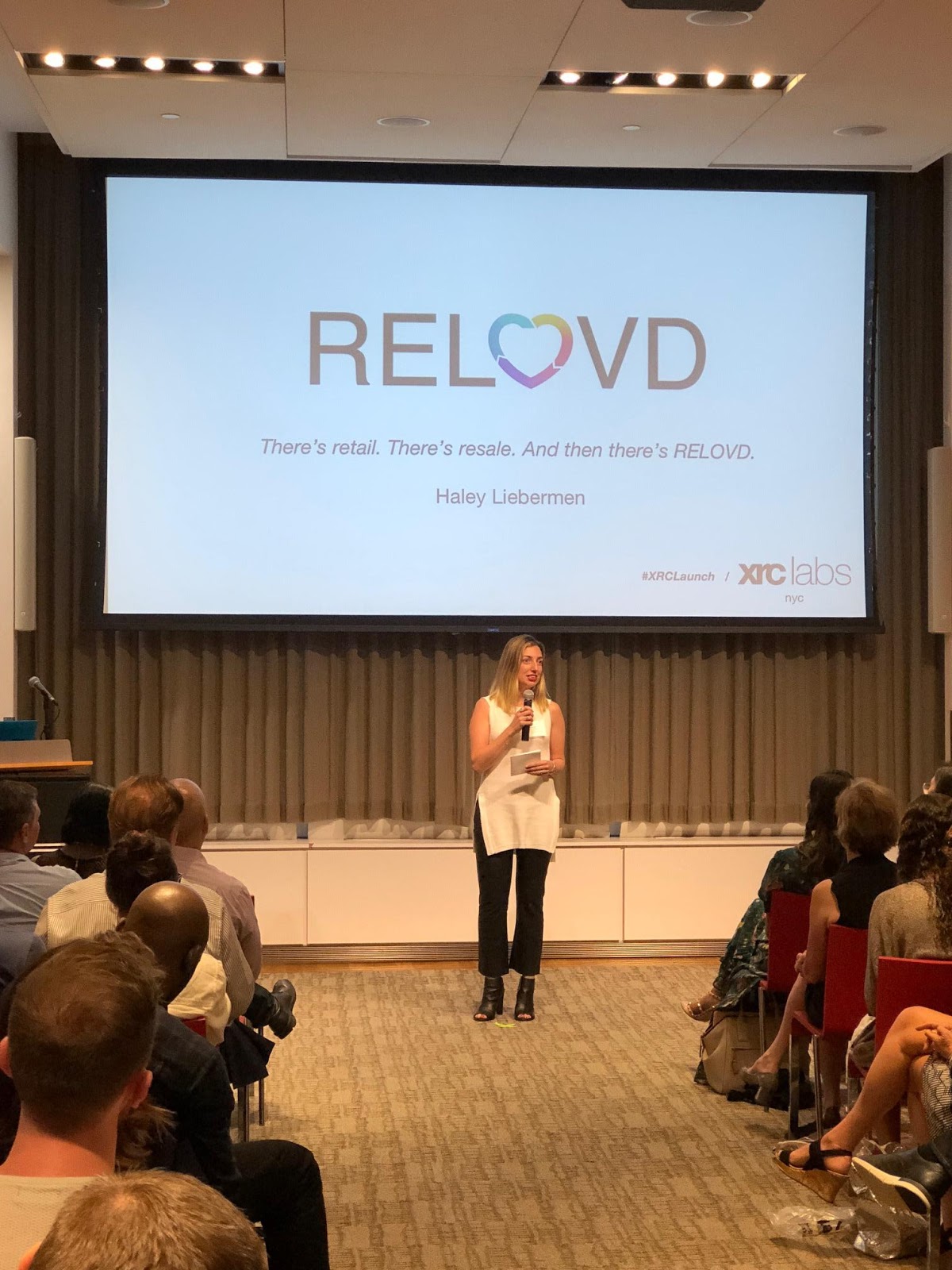 Haley Lieberman, Founder, RELOVD
Source: Coresight Research
Haley Lieberman, Founder, RELOVD
Source: Coresight Research
RetailDeep is a facial-integration platform that uses sensors to identify shoppers as they walk into the store and then delivers personalized insights, with the goal of saving retailers the cost and time to integrate facial-recognition data with client relationship management (CRM)/Point of Sale (POS) data. Founded by two AI Ph.Ds in 2014, the company is building sensors to help brick-and-mortar retailers detect individual customer visits. The sensors are powered by AI technology, which can then draw from all available data sources such as POS data, CRM or ERP system to help retailers map the customer journey through online, in-store and even social media.
RetailDeep worked with a cosmetic store in Halifax, Canada, Moon Moon Cosmetics Boutique, and was able to connect a customer visit and purchase record in the POS system, providing the name, the item and the total price to a face recognized. This is the first customer with an omnichannel profile for Moon Moon Cosmetics. The company plans to continue to build customers’ personalized omnichannel profiles, so when they enter the store, they can provide personalized suggestions and experiences.
 Simplista is a cloud-based platform that simplifies and automates product listing and item master management for retailers. The listing services seeks to get products from suppliers to retail shelves in a more efficient manner. According to Founder and CEO, Evan Silver, the platform is introducing new products faster, helping retailers realize greater margins.
The platform provides a collaborative environment for retailers and suppliers to work together in a structured and automated way to get their product data right the first time. Simplista seeks to solve a fundamental problem at the top of any retailer’s supply chain: product listing, an antiquated and costly process, where operational friction means lost revenue for both retailers and their suppliers. According to Silver, “We solve retailers’ three challenges: Supplier data is easily captured and validated at source, retailer data is quickly and accurately integrated and product changes are executed seamlessly. All of this happens in real time.”
Simplista is a cloud-based platform that simplifies and automates product listing and item master management for retailers. The listing services seeks to get products from suppliers to retail shelves in a more efficient manner. According to Founder and CEO, Evan Silver, the platform is introducing new products faster, helping retailers realize greater margins.
The platform provides a collaborative environment for retailers and suppliers to work together in a structured and automated way to get their product data right the first time. Simplista seeks to solve a fundamental problem at the top of any retailer’s supply chain: product listing, an antiquated and costly process, where operational friction means lost revenue for both retailers and their suppliers. According to Silver, “We solve retailers’ three challenges: Supplier data is easily captured and validated at source, retailer data is quickly and accurately integrated and product changes are executed seamlessly. All of this happens in real time.”
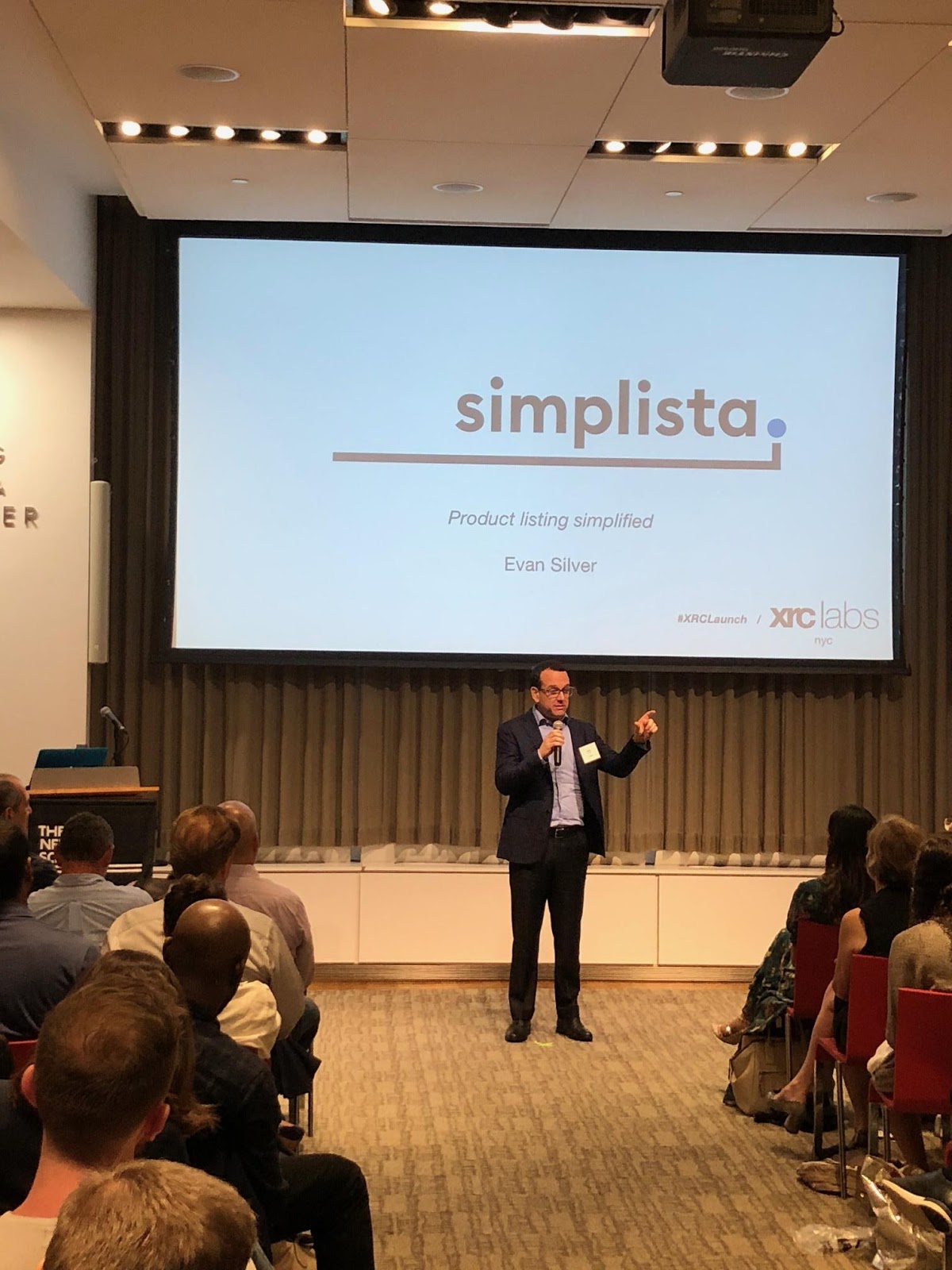 Even Silver, CEO and Founder, Simplista
Source: Coresight Research
Even Silver, CEO and Founder, Simplista
Source: Coresight Research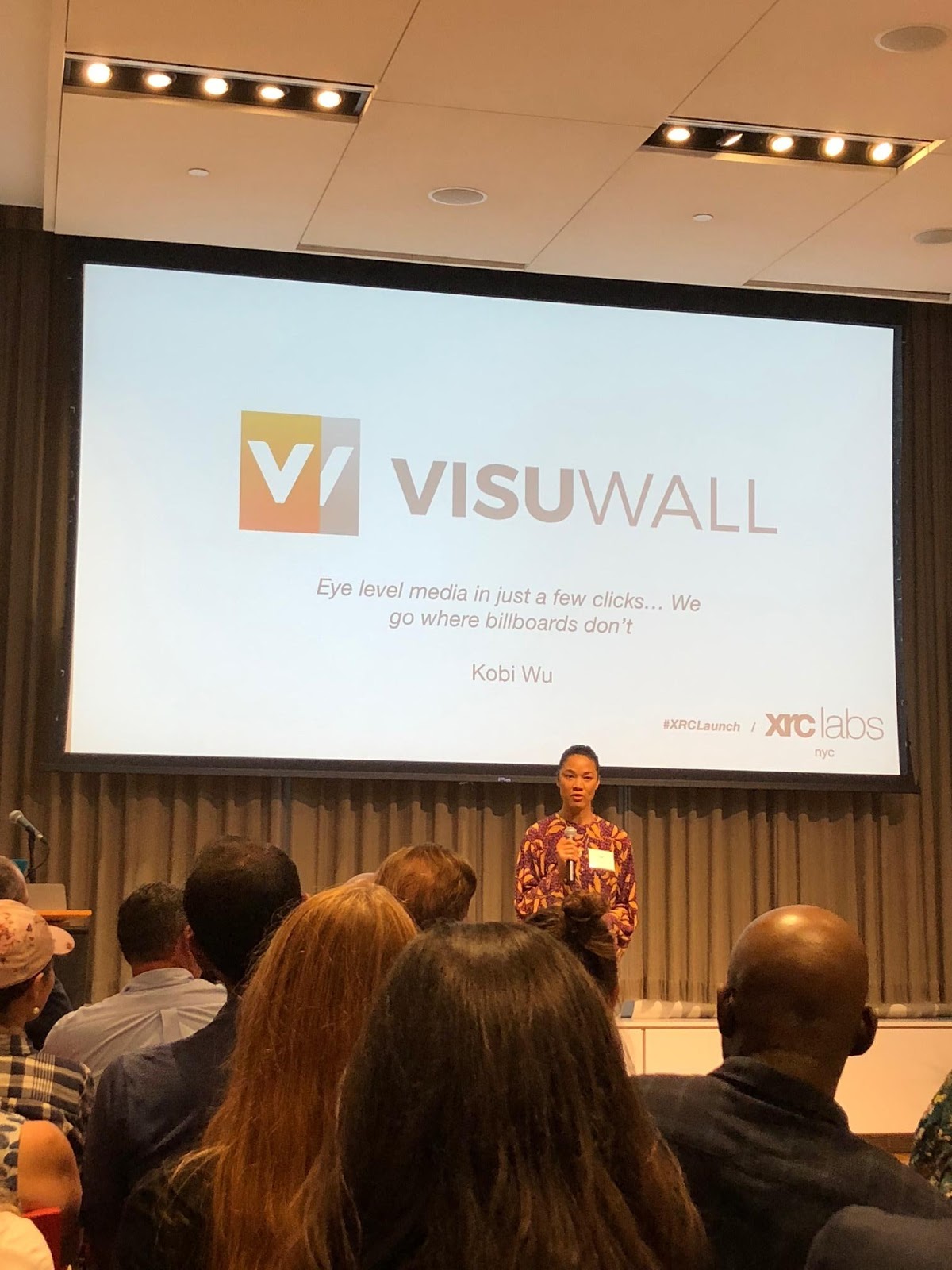 Kobi Wu Pasmore, Founder and CEO, VisuWall
Source: Coresight Research
Kobi Wu Pasmore, Founder and CEO, VisuWall
Source: Coresight Research